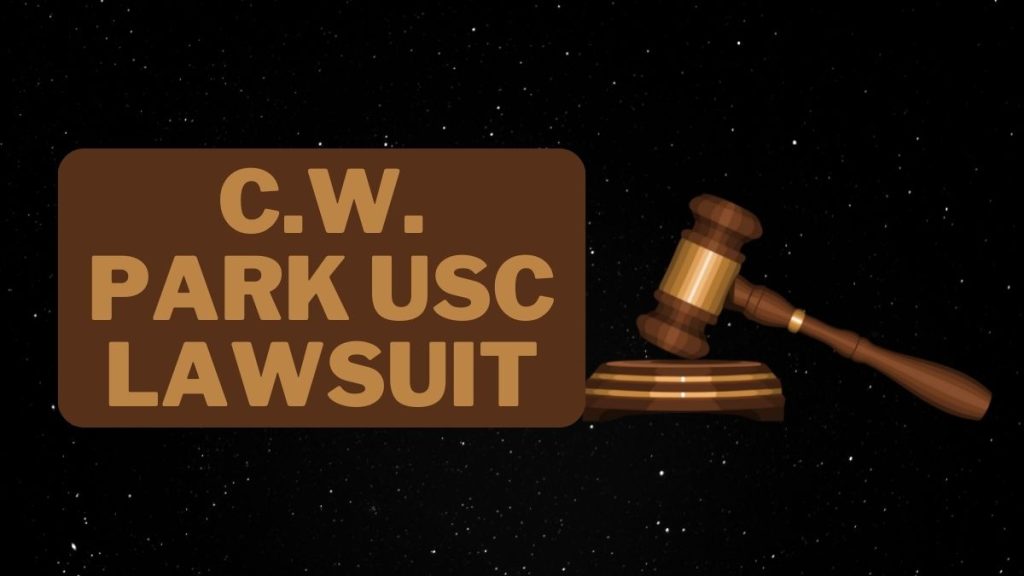There has been a spotlight shone on the world of higher education thanks to the C.W. Park USC Lawsuit which has sparked discussions, controversies, and possible reforms. This piece delves into the charges, the effect they’ve had on admissions processes and affirmative action regulations, and what it all means for elite universities like USC.
The students who brought the action against USC and C.W. Park claim that the universities’ preference for applicants with connections and financial support is discriminatory. It prompts us to reconsider the efficacy of affirmative action and calls into question the values of fairness and meritocracy in academic institutions. Transparency and institutional commitment to inclusivity are vital for achieving true fairness in higher education.
Background on Higher Education Admissions and Affirmative Action
Concerns about equity and justice in college admissions have been raised for quite some time. Affirmative action has been controversial because of its goal of increasing racial, ethnic, and gender diversity in educational institutions. Critics say it leads to reverse discrimination and unjustified benefits unrelated to academic achievement, while proponents say it helps underrepresented groups by addressing historical imbalances and providing access.
The C.W. Park USC Lawsuit has reignited these discussions by shining a light on charges of preferential treatment based on relationships and financial contributions, and by raising questions about institutional adherence to equity and meritocracy in admissions. The lawsuit calls on universities to be open about their diversity and inclusion policies and take concrete steps to ensure equal education opportunities for all students.
The Allegations Against USC and C.W. Park
Alleging that Park accepted bribes to enroll unqualified students, the lawsuit claims that USC and Park engaged in discriminatory admissions practices. It has also been claimed that USC routinely gives preferential treatment to students who come from wealthy or politically connected families. These accusations go to the heart of meritocracy and fairness, and they threaten the hopes of many deserving students who want to attend top universities.
These charges, while not yet substantiated, raise questions about fairness and honesty in college admissions processes. Cases like this have weakened public trust in university admissions, putting pressure on universities to examine and maintain equitable practices.
Impact of the Lawsuit on USC and Higher Education
The C.W. Park USC Lawsuit University of Southern California litigation has had far-reaching effects on USC and the entire field of higher education. Claims of discriminatory admissions processes have diminished USC’s once-prestigious status. Affirmative action policies have been called into question due to this case because of the accusations that they may be used to discriminate against people because of their color or ethnicity.
Many institutions may review their admissions procedures in light of the case, placing a greater emphasis on fairness and transparency. There may be increased expectations placed on admissions staff to outline stricter standards for admittance. The controversy should serve as a wake-up call to universities across the country, reminding them of the significance of maintaining the highest standards of integrity and ethical behavior.
Although the case’s ultimate impact is still up in the air, it has unquestionably sparked discussions about how college admissions may be improved. Colleges and universities should think about ways to restore applicants’ faith while still being fair to everyone who applies.
Criticisms and Controversies Surrounding the Case
Affirmative action rules in college admissions have been called into question as a result of the C.W. Park USC Lawsuit, and the case has also been met with its fair share of criticism and controversy. Critics claim that these practices are biased in favor of specific racial or ethnic groups and undermine the importance of merit alone in the admissions process.
Some have questioned the accusers’ intentions and possible prejudices, which has stoked yet another debate. Concerns have also been raised regarding the possible ripple effect this lawsuit could have on future admissions procedures, opening the door to similar claims against other institutions and drawing focus away from other systemic problems in higher education, such as access and affordability.
Affirmative action is a topic that will continue to provoke arguments about fairness and equity in society, and this case exemplifies the profound schisms that exist among higher education’s key players.
Possible Changes in Admissions Processes
As a result of the C.W. Park v. University of Southern California litigation, many universities are considering modifying their admissions policies. Possible changes include giving less weight to standardized test scores and giving more weight to other aspects of an applicant’s application, such as their accomplishments, extracurricular activities, and personal traits. This would make it possible to conduct an assessment that takes into account the specifics of each applicant’s situation and history.
The implementation of more stringent control and accountability systems within institutions is another possibility for reducing the prevalence of fraud and increasing the consistency of admissions policies. An increase in the significance of affirmative action policies that aim to provide equal opportunities for students of all backgrounds may result from efforts to promote diversity and inclusivity.
Changes in admissions procedures could also be facilitated by technological advancements. Universities could create less biased decision-making mechanisms with the use of technologies like artificial intelligence (AI) by using algorithms to examine applications.
While these are merely possibilities, it is undeniable that the C.W. Park v. USC litigation has sparked serious debate about the need for changes to the way universities select their applicants. Institutions will need to figure out how to win back the trust of potential students while still being fair to everyone who applies.
Conclusion: Examining the Broader Implications for Higher Education
Important debates over affirmative action and college admissions processes have been ignited by the C.W. Park v. University of Southern California lawsuit. Although the claims are unique to this instance, they affect more than just the people directly engaged. It is a timely reminder that colleges and universities should never relax their standards for admittance.
More individuals or groups may come forward with similar charges after this lawsuit, calling for a more thorough investigation of college admissions across the country. More lawsuits and investigations exposing discriminatory practices could follow, and this could lead to shifts in admissions policies that place higher value on holistic evaluations and diversity.
Equal representation and a welcoming environment for all students are themes that emerge from this case as well. Because of this, educational institutions need to work actively to rectify current disparities and develop fairer systems that accurately reflect the various populations they serve.
Finally, the C.W. Park v. University of Southern California lawsuit provides a chance to assess the fairness of access to high-caliber educational opportunities. We may work toward a world where people of all backgrounds and socioeconomic statuses have equitable access to higher education by debating race-conscious admissions rules and considering their broader consequences.







